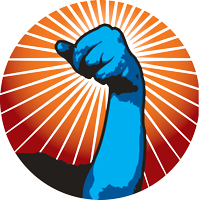24 Dec OF SPOONS AND MATCHSTICKS
Everything you do requires your energy. Getting up and getting things done during your day is something most people take for granted. However, if you have a disability or chronic condition, things are very different.

“How are your spoons today?”
“Do you have any spoons left?”
“I wish I could give you some spoons.”
If you have no idea what I’m talking about, let me introduce you to the Spoon Theory. The Spoon Theory was invented by Christine Miserandino in order to explain to her best friend what it was like to have Lupus. Basically, you start with a number of spoons in the morning when you wake up, and they get used up by the activities in your day. Different things take different amounts of spoons, on different days. And, you never know how many you’re going to have when you wake up in the morning.
Fun, right?
Yeah…no, not so much.

For me personally, I prefer the Matchstick Theory. It’s the same concept as the Spoon Theory but takes into account a few more things. Matches burn for a finite and variable amount of time; some might not burn as long as others. Matches might break. Matches might get wet and be completely useless from that point on. Sometimes you might need to burn two or three matches to get something lit.
You can even burn yourself with your own matches.
No spoons, no work. No matches, laundry doesn’t get done. No spoons, you have to cancel dinner with your friends.
It doesn’t really matter which one of these works for you. If you have a different theory that works, more power to you. They both serve the purpose fairly well: being a decent way to describe the limitations that come with disability and chronic illness to people that don’t have a frame of reference. I think it works well for both physical conditions like lupus and fibromyalgia, as well as mental issues like depression and anxiety.
I find it useful to have a way to help others understand at least a little bit what the random daily limitations are like. I suppose others might find it condescending when people asked them how their spoons are today, but for me, I take it as my friends and family showing that they care and that they want to understand.
Matches photo by Devin Avery on Unsplash
Spoons photo by Hans on Pixabay


